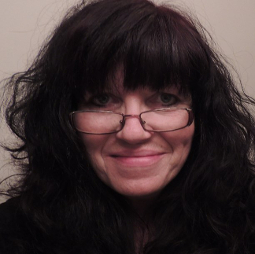And there was no dance,
no holy place
from which we were absent.
~Sappho
Talk me down, if you can. There is so much to be dangerous about. There is that knowing that has shimmered just beyond me as long as I can remember, disarticulated light, shivers like streetlight glimmers on a hotel window. Below, by the pool, by all the pools, beautiful young men with dark trimmed beards, and young women with boys’ hips and year-round tans who smiled without moving their mouths — it seemed they all knew.
I, meanwhile, saved up my tips from the bar to pay for a night at the 6 just so I could watch TV in color. If the bikers at the Swinging Curve tipped well, I stayed two nights – one to watch Bobby on Dallas, the extra to work up my nerve. Even then, I was looking for you.
I didn’t know the rules. In this hand a Bible, in that one a knife. The man I saw die when I was fourteen changed everything, my drug dealer boyfriend hushing me up, rushing me out, into a night too poor even for stars.
Mama said find someone strong, stronger than you are. It happened once, but he died.
And now I fumble again, hands smelling like metal, like blood, like love when it knows that it’s leaving. Mama was right. It didn’t come easy.
I understood it back then, back when the rules were about spare change and flat tires and making it till payday, when the space and ways of being alone were so commonplace that I didn’t even know I was lonely. But that was only before the game rearranged, before learning how dangerous is desire.
A long way from the bar, all respectable now, I’m not sure how, but the Mastercard pays for the room, somewhere, anywhere, as long as I can drive there in my time off from teaching. Now it’s a Hilton in Manhattan on what they now call the Avenue of the Americas. It’s the effect, and the because, the mini-bar, and pay-per-view movies, or a Ramada in Georgia, with its kerosene coffee and breakfast bar crowded with kids with bare feet and parents who couldn’t care less about cost in that vacation moment. I move among them, still the poor girl on fire, dancing with loss.
And it still shimmers, their knowing, white crescents, slivers of light like chance on the surface of the pool, in the frosted globes, light fixtures glowing hard in hallways that smell like chlorine. The voices of the families follow me to the parking lot. They know what they mean, and what they need, and what they’ve got. They understand what they deserve.
I don’t even know what I’ve learned. In some of the cities I drive to, shots are fired. Someone dashes to the metro, afraid of missing the last train. Somewhere else, lovers, walk in the rain because they’re in love, and so lovely. In a hotel room, they’ll watch movies in black and white, on purpose, and find it charming, subtitles disarming them as they drift off and dream.
This one day, outside Macon, I’ll leave the pony-tailed girl who brings my one cup of coffee a twenty dollar tip, won’t wait to see her look up in surprise or slip it into the apron tied round her hips, won’t wait to see if she even looks out to see the woman holding sandals in her hand running to jumfrom p into a bright red car.
Talk me down, if you can. I still have so far to drive Mary Carroll-Hackett holds an MFA from Bennington College, and is the author of The Real Politics of Lipstick, Animal Soul, If We Could Know Our Bones, and most recently, The Night I Heard Everything from FutureCycle Press. She teaches at Longwood University and as low-residency MFA faculty at West Virginia Wesleyan College.
Mary Carroll-Hackett holds an MFA from Bennington College, and is the author of The Real Politics of Lipstick, Animal Soul, If We Could Know Our Bones, and most recently, The Night I Heard Everything from FutureCycle Press. She teaches at Longwood University and as low-residency MFA faculty at West Virginia Wesleyan College.
